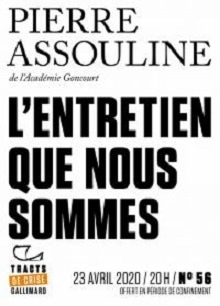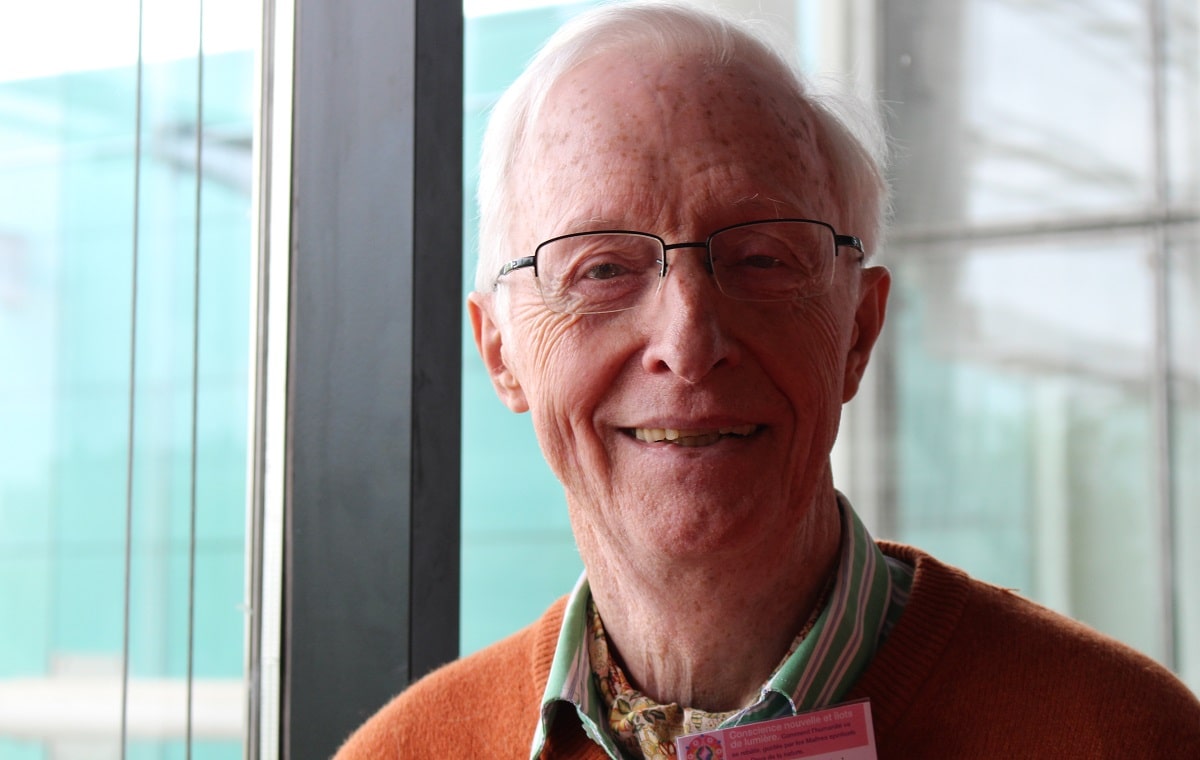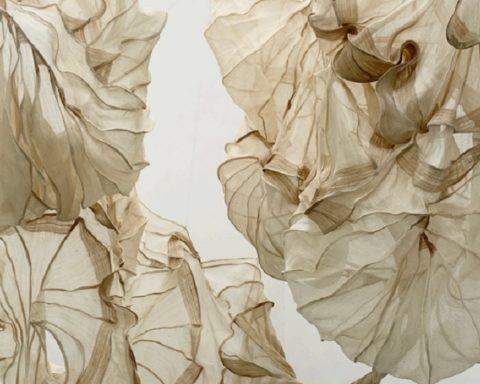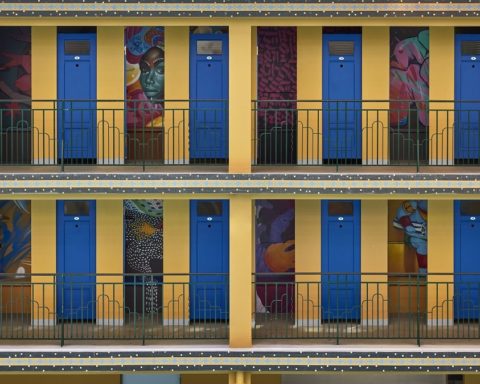Face au coronavirus et confinement qu’il entraîne, les éditions Gallimard mettent en ligne gratuitement chaque jour un à deux « Tracts de crise » signés par les grandes plumes de la Maison comme Erik Orsenna, Sylvain Tesson, Cynthia Fleury, Régis Debray ou Danièle Sallenave, afin de réfléchir aux questions que soulève l’épidémie et garder le lien avec le lecteur. 56 titres sont parus à ce jour. UP’ a choisi de vous offrir chaque jour un extrait d’un texte et auteur sélectionné.
 C’est fou ce qu’on parle depuis qu’on ne se rencontre plus. On se voit encore mais pas pour de vrai. La clôture qui nous est imposée n’a pas tué le goût des autres. Ça continue mais autrement. Et de se zoomer, de se skyper, de ce facetimer ! Pendant ce temps, une autre parlerie se poursuit ailleurs et sans image, sans le délice du face à face.
C’est fou ce qu’on parle depuis qu’on ne se rencontre plus. On se voit encore mais pas pour de vrai. La clôture qui nous est imposée n’a pas tué le goût des autres. Ça continue mais autrement. Et de se zoomer, de se skyper, de ce facetimer ! Pendant ce temps, une autre parlerie se poursuit ailleurs et sans image, sans le délice du face à face.
À la faveur des événements, fertiles en angoisses, doutes, incertitudes, la conversation sur la Toile s’est démultipliée. La nuit n’est plus le refuge et l’exécutoire des solitudes qui s’insupportent. Le jour aussi. Sur la Toile, il y a toujours quelqu’un à qui parler. Chaque jour de l’année, à toute heure du jour ou de la nuit. « Tout bon entendeur doit y trouver salut et s’y retrouver, non sali », formule admirablement cadencée tirée du Criticon de Baltasar Gracián. On renoue avec l’ancienne conversation dans ce qu’elle avait de meilleur : on ne s’y intéresse pas aux gens pour ce qu’ils font – leur fortune, leur pouvoir ou leur métier, toutes choses ignorées et jamais demandées, mais pour ce qu’ils sont. Tout le contraire de la conversation française telle qu’elle se pratique quotidiennement de vive voix au XXIe siècle où l’on est ce que l’on fait, et où l’on n’existe que par ce que l’on représente. L’internet ressuscite cette relative et bienheureuse invisibilité. Elle réinstalle une égalité de départ entre les interlocuteurs, ce qui était à la base même du dialogue. Faut-il croire que les nouvelles technologies vont aider celui-ci à redevenir le fondement de la morale ?
Est-ce Hölderlin ou Kleist qui a posé cette formule si brève et si dense : « L’entretien que nous sommes » ? Qu’importe l’auteur quand sa réflexion nous est intelligible sans lui : que sommes-nous sans cet entretien permanent que nous entretenons avec les livres et les hommes, ce colloque permanent avec l’autre ? On n’a jamais raison tout seul. Ne jamais oublier qu’à l’origine, conversation ne s’entendait pas nécessairement comme une prise de parole. Entrer dans la conversation, c’est accepter tacitement de se mettre en société. Même le dandy y a sa place. On le repère à sa faculté de s’exprimer en permanence non pour échanger quoi que ce soit avec qui que ce fut mais pour régner par son verbe. Flatté ou méprisé, il n’en a cure et poursuit sa route en solitaire. Seule une indifférence durable est de nature à la décourager. Mais en règle générale, toute velléité de monologue est balayée. La prise à partie et l’injonction permanentes y sont telles qu’elles forcent à l’échange. Nul n’y soliloque longtemps. Tous ceux qui ont pignon sur Toile en conviendront : si l’internet est une poubelle, on y trouve le meilleur et le pire. Mais outre que le pire recèle aussi des pépites, le meilleur a ceci de particulier qu’il se trouve là et nulle part ailleurs. Si c’est désormais en ligne que ça se passe, c’est aussi là que passe l’essentiel de la conversation, là qu’elle se déploie.
Rarement la conversation se sera imposée de manière aussi évidente comme une forme de littérature orale. L’ancienne dénonciation de ce que l’oralité peut avoir de fallacieux tombe devant l’échange en ligne ; elle devient inopérante tant la confusion des genres y est immédiate, l’écrit y étant oral. La conversation ne connaît pas de temps mort dans ce monde qui ignore les fuseaux horaires ; il y a toujours quelqu’un à qui parler quelque part.
La parole y coule dans une circumnavigation, un fleuve dans le flux de l’information et de la connaissance. Il s’inscrit naturellement 5 dans ce nouveau monde où les vérités ne sont plus intangibles mais évolutives d’heure en heure. Les adeptes de la conversation en ligne sont parfois plus proches que des gens qui se connaissent et se fréquentent pour de vrai. À quoi tient cette proximité si ce n’est à la conscience d’appartenir non à une même tribu mais à un même réseau ?
Pierre Assouline de l’Académie Goncourt, « Tracts de crise » n°56 – Gallimard, 23 avril 2020, 20 h












